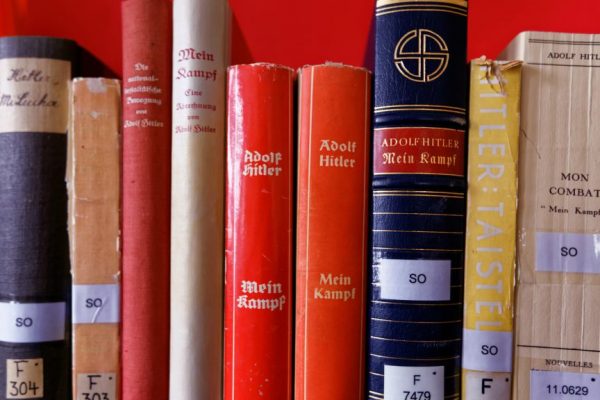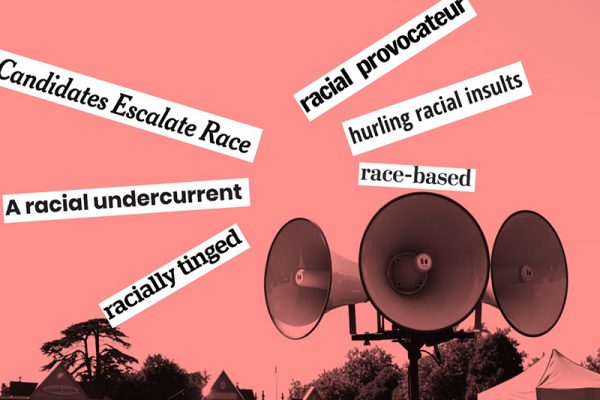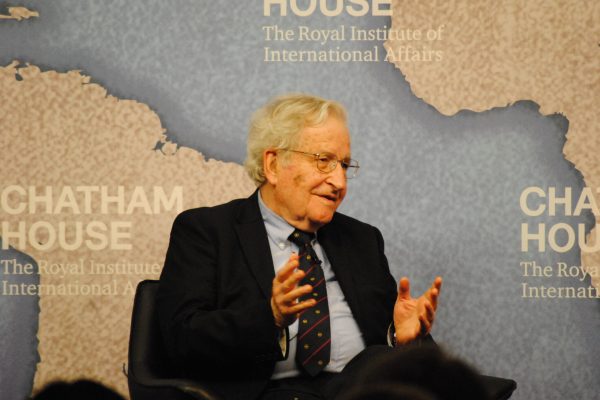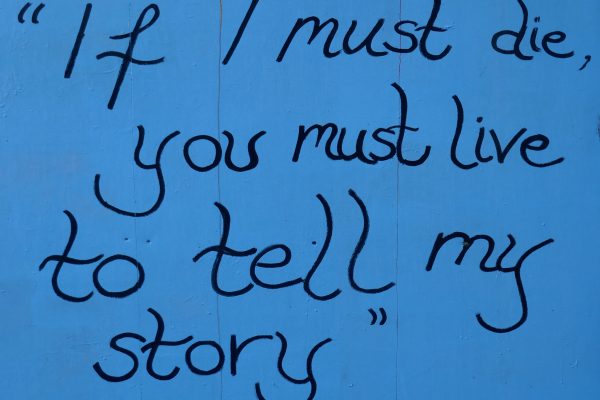Who pays for cheap language instruction? In July 2020, a trio of scholars posed the question to Boston Review readers, lamenting the lack of public interest around the working conditions of gig-economy language teachers—despite a massive rise in online language learning during pandemic lockdowns. “Cheap language instruction is possible because of the same things that give us cheap coffee, budget car rides, and bottom-dollar high-street fashion,” they wrote, “that is, outsourcing, underpaid Global South labor, and the gig-economy.”
This was the third time that one of the coauthors, Yuliya Komska, wrote for Boston Review about the politics of language—which also forms the topic of today’s reading list. In 2019 she explored a widespread misconception, exacerbated by the English-only bigotry of Make America Great Again and Brexit, that xenophobic, racist, or oppressive ideologies are always doggedly monolingual—and, conversely, that multilingualism exclusively serves the goals of democracy, pluralism, and open-mindedness. Instead, she shows how right-wing politicians have demonstrated savvy with using translation to spread their messages. “Far-right language politics,” she writes, “has long been a languages politics, a politics of translation.” And what about battling against such language? In another essay, Komska shows how, just as the Germans learned after World War II, combatting fascist language is harder than just deleting offending terms.
And it’s not just the right that has a language problem. Earlier this year, politics professor Adam Przeworksi explored how the left started using the language of neoliberalism, and why it lost the battle of visions as a result. “Suddenly they adopted the neoliberal verbiage about ‘trade-offs’—between ‘equality and efficiency,’ between ‘equality and growth,’ he argues. “The world became full of ‘dilemmas’ and ‘trilemmas.’” Obfuscating jargon has also plagued the mainstream media, as Larry Glickman shows in his perennially popular essay about how the media went from describing things as “racist” to using the watered-down term “racially tinged.” Colin Dayan also rails against euphemisms, decrying how barriers that annex Palestine are often called “security fences” by Israel and its sympathizers. “Talking about Gaza is like talking about God,” she writes. “We face the ineffable. We cannot talk about what we see.”
Our reading list also turns to the education system in Israel, with a recent essay offering a Palestinian mother’s perspective of what isn’t taught in Israeli schools. While the segregated schooling system means that Palestinians can use Arabic as the language of instruction in classrooms, they are also required to spend many more hours on the study of Hebrew—and that’s just the tip of the iceberg. Similar debates are underway in Nepal, where schools increasingly use English as the language of instruction. But in the name of preparing them for a globalized world, non-mother-tongue education often fails the students it aims to help, Eleanor Hildebrandt argues. At the other end of the schooling spectrum, Joel Christensen explores the culture wars surrounding the study of Latin, and argues that doing so simply for “beauty” and “pleasure” threatens to make classics into a mystery-cult rite. “There is a real-world danger to this aestheticizing attitude toward linguistic study,” he writes. “It is not enough to learn Latin alone, to excise it from its place and time for merely personal use.”
We end on a completely different note, turning to Chomsky on linguistic theory. In “What We Know,” he explores how knowledge is determined by our internalized language systems, as distinct from the culturally specific symbolic systems (English, Spanish) to which the term “language” usually refers. While the Charles River would still be a river if its course were reversed or if it were divided into separate streams, we would also intuitively understand it to no longer be so if “its surface were hardened by some near-undetectable physical change, a line were painted down the middle, and it came to be used for driving to Boston (in which case it would be a highway)… What human beings know is remarkably intricate and subtle.”
Far-right leaders often call for one nation united under one language. They have also always been good at using translation to spread their politics.
Combating fascist language is harder than just deleting offending terms. Can we find a creative solution that serves today’s needs?
The beauty of the language should not keep us from reckoning with its history.
Leaders of the left abandoned the language of transformation in the 1980s—at a cost. Can it be regained?












